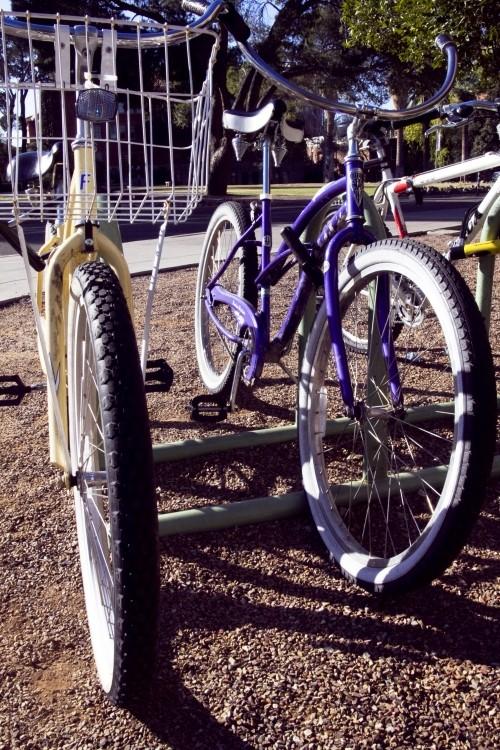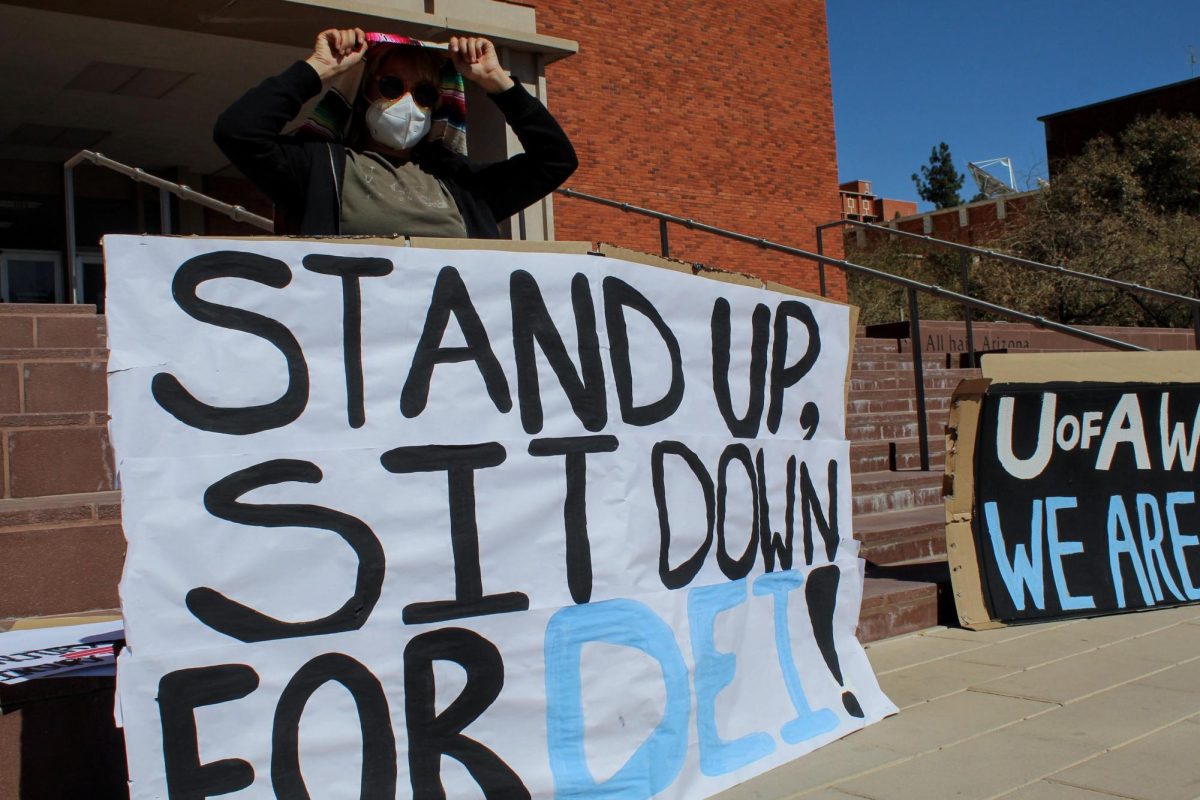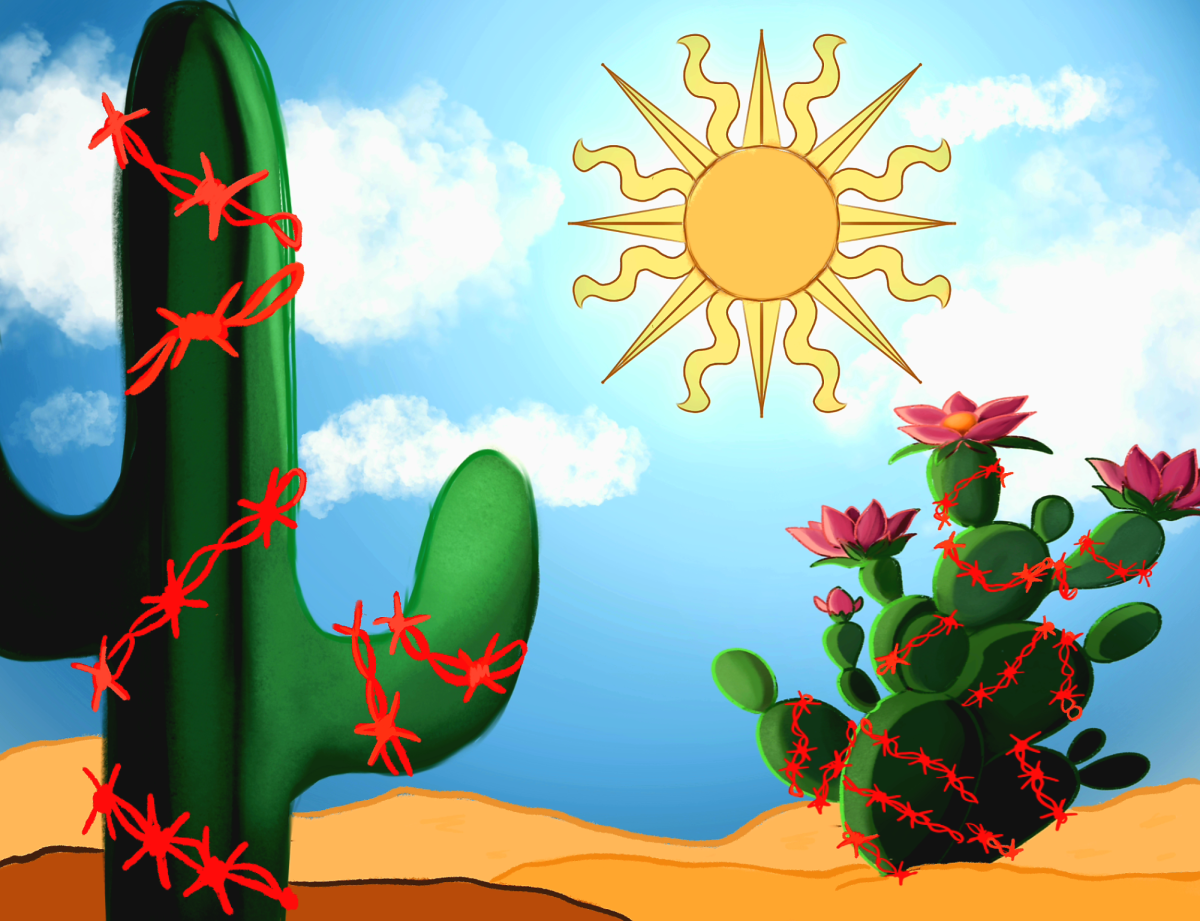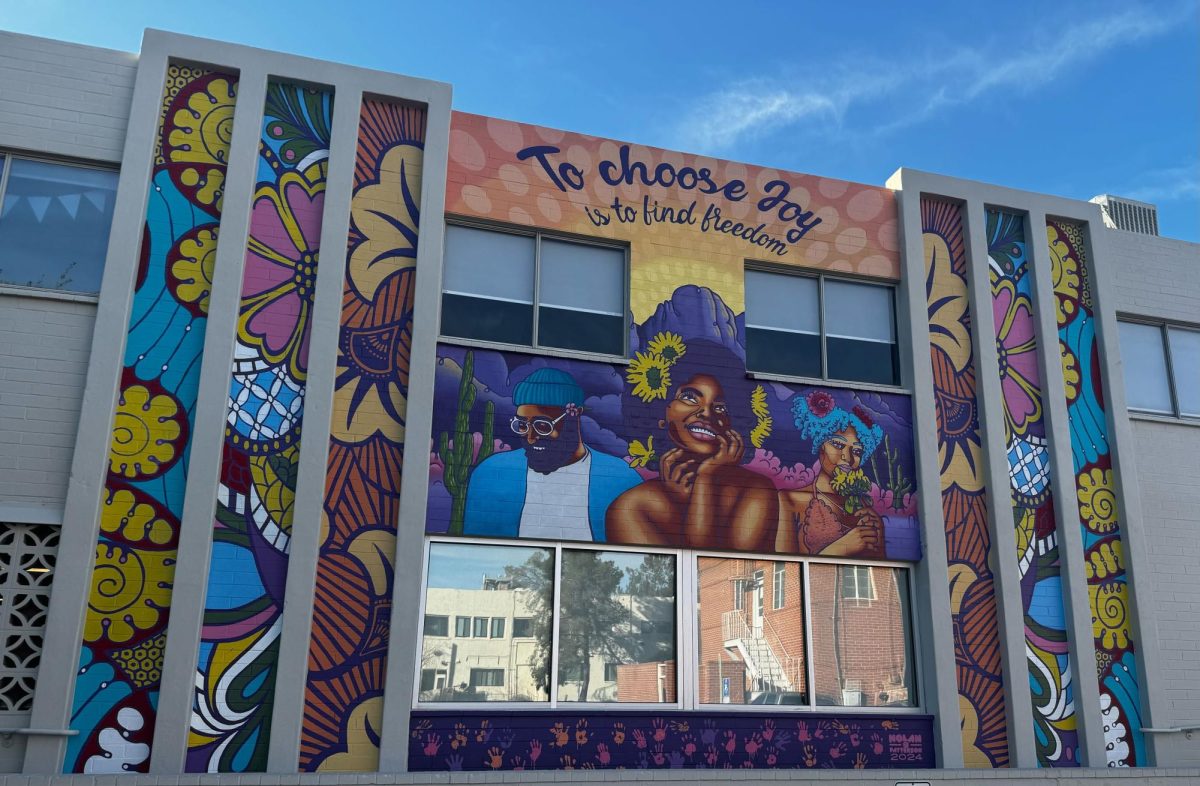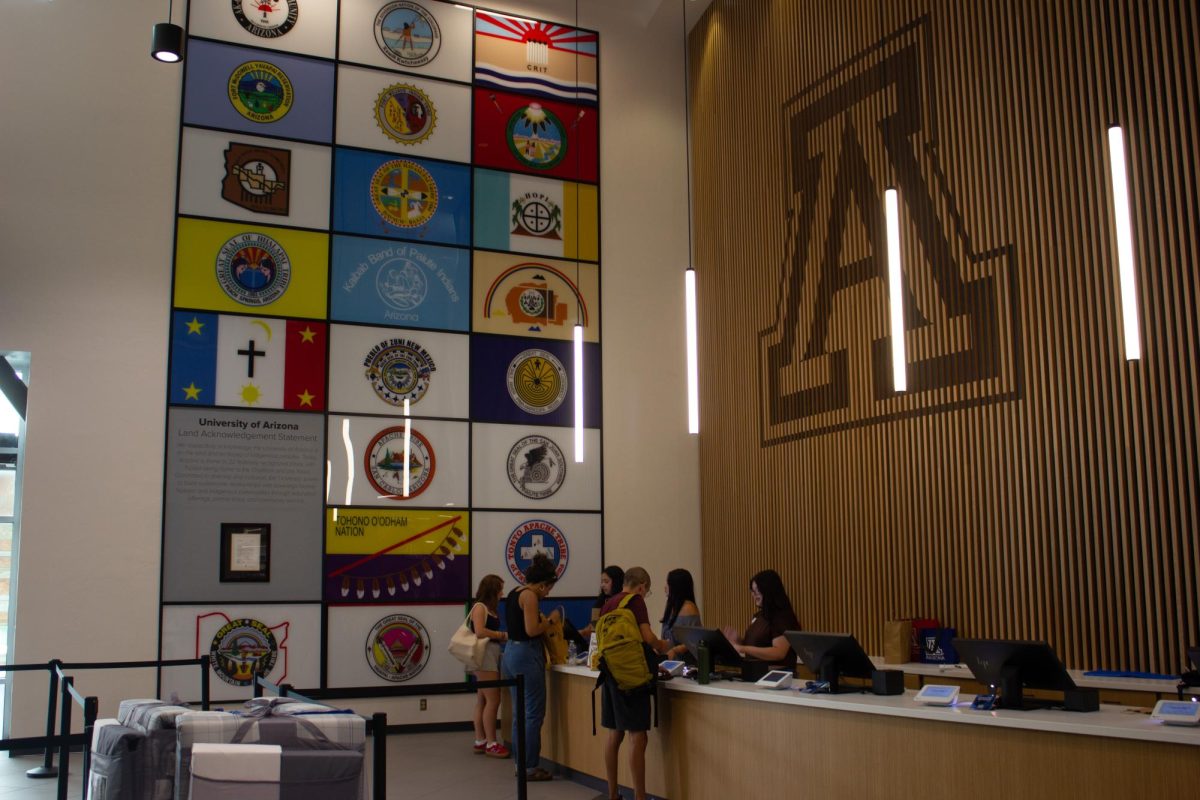The UA Mel and Enid Zuckerman College of Public Health and the Department of Mexican American Studies are working with community partners to create a bicycle program in Ajo, Arizona.
The program’s partners provided bikes to Ajo, teach classes on bicycle safety and are working to implement a biking program at the local middle school in conjunction with the Ajo Unified School District. All this is done with a focus on chronic disease management and prevention as well as transportation, according to Martha Moore-Monroy, REACH program director and a health promotion sciences lecturer.
Ajo is designated a medically under-served area, according to Ada Wilkinson-Lee, an assistant professor in department of Mexican-American studies and the co-principal investigator and evaluation director for the grant funding the project.
RELATED: 3,000 miles later, UA professor and UA medical student return from their bike listening tour
“This is a way for us to try to increase the physical activity to then hopefully counteract some of those health disparities,” she said. “So we’re hoping by it being housed in the middle school that it’s going to help lower the rates of inactivity among the kids.”
Wilkinson-Lee said at first, those involved with the program were only hoping to create an after-school program with the bikes. She said the school district has wanted to take it a step further and is considering integrating the program into school curriculum so that students who ride the bus after school do not miss out on participating,
“The school’s been really generous,” Wilkinson-Lee said. “They’re willing to offer us space in the school to house and store the bikes. It’s one of those programs where part of the need is the lack of bikes that are available, and so this way, students can actually rent a bike.”
In addition to helping students, the Bike Ajo Project helps adults learn about bicycle safety and how to ride a bike. The program trains bike ambassadors to hold free classes for the community.
The classes are kept between eight and 12 people to “make it a little more personal and manageable,” according to Adrian Vega, a league certified instructor for League of American Bicyclists and one of the instructors for the Bike Ajo Project.
Vega, an Ajo resident, will be teaching his first class of about ten this weekend. He said he will emphasize courtesy, safety and laws in his classes and that the classes are often tailored for the town of Ajo.
“We’re a really small town,” Vega said. “Some roads are pretty bad and we don’t have bike paths, so we’re going to have to develop safer routes.”
Wilkinson-Lee said that working with the community was important to her and Moore-Monroy.
“We really wanted people from the community to say what it is and what they need and want, and so the staff are members of the community themselves,” Wilkinson-Lee said. “They’ve been there the whole time and they know the ins and outs of the community.”
The program was created through many partnerships, building on decade-long collaborations with organizations such as the Pima County Department of Transportation Bicycle and Pedestrian Program, the UA Department of Mexican-American Studies and incorporating the Arizona Planning Association, UA College of Public Health Health Promotion Sciences, the Desert Senita Community Health Center and other community departments, according to Moore-Monroy. The project was funded by the American Public Health Association and the American Planning Association, Wilkinson-Lee said.
RELATED: UA grad, former Wilbur completes cross-country bike ride for charity
As the grant for the Ajo program comes to an end, Wilkinson-Lee said they hope the program will become self-sustaining.
For now, though, the reaction to the program has been “really positive,” according to Moore-Monroy. She said the day they delivered the bikes to the town was “a great day to be down there.”
“We’ve been working on this for a while, and so it’s nice to see the fruits of your labor,” Moore-Monroy said. “I think that’s how the community saw it too, because it’s been a lot of work on the community’s side too.”
Follow Ava Garcia on Twitter.



